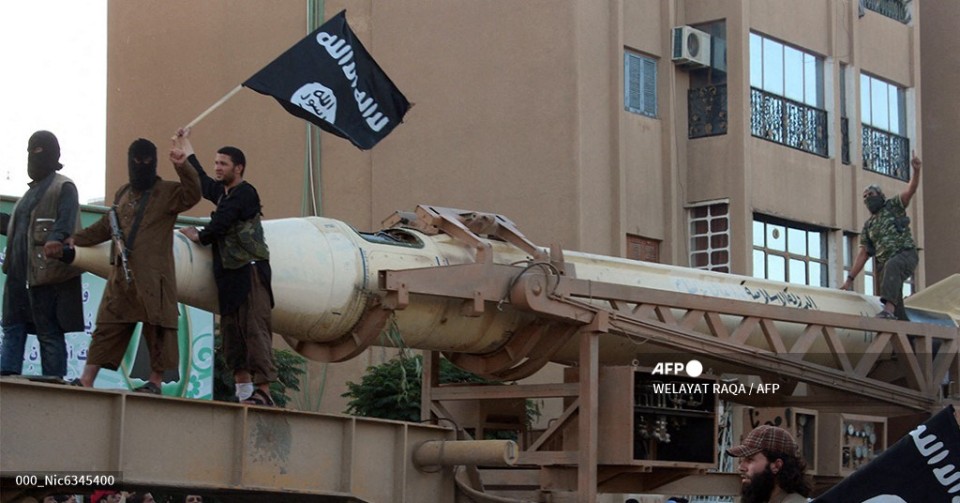
Beirut, Lebanon (AFP)
The Islamic State jihadist group said Wednesday that its leader Abu Hasan al-Hashimi al-Qurashi has been killed in battle and announced a replacement to head up its remaining sleeper cells.
A spokesman for IS said Hashimi, an Iraqi, was killed “in combat with enemies of God”, without elaborating on the date or circumstances of his death.
The US military’s Central Command (CENTCOM) said Hashimi had been killed in an operation carried out by rebels of the Free Syrian Army in Daraa province in southern Syria in mid-October.
Daraa province is mostly controlled by Syrian government forces and rebels who have reached understandings with the regime. In mid-October, Damascus said it had launched a joint operation against IS with former rebels in the south of the province.
Using an alternative acronym for IS, US National Security Council spokesman John Kirby said: “We welcome the announcement that another leader from ISIS is no longer walking in the face of the Earth.”
Speaking in an audio message, the IS spokesman said Abu al-Hussein al-Husseini al-Qurashi had been named as the group’s new leader.
Qurashi refers to a tribe of the Prophet Mohammed, from whom IS leaders must claim descent.
– ‘Caliphate’ –
After a meteoric rise in Iraq and Syria in 2014 that saw it conquer vast swathes of territory, IS saw its self-proclaimed “caliphate” collapse under a wave of offensives.
The Sunni Muslim extremist group’s austere and terror-ridden rule was marked by beheadings and shootings.
It was defeated in Iraq in 2017 and in Syria two years later, but sleeper cells still carry out attacks in both countries.
The group or its branches have also claimed attacks elsewhere this year, including in Afghanistan, Iran and Israel.
The spokesman did not provide details on the new leader, but said he was a “veteran” jihadist and called on all groups loyal to IS to pledge their allegiance to its fourth leader.
IS’s previous chief, Abu Ibrahim al-Qurashi, was killed in February this year in a US raid in Idlib province in northern Syria.
His predecessor Abu Bakr al-Baghdadi was killed, also in Idlib, in October 2019.
– ‘Global threat’ –
White House Press Secretary Karine Jean-Pierre would not comment on any US involvement in the operation that led to Hashimi’s death.
“We are pleased to see the removal of ISIS leaders in such quick succession,” she told reporters “The United States remains committed to countering the global threat from ISIS and stands ready to work with international partners.”
The IS leadership have suffered repeated blows from various quarters this year.
In October, US forces killed a “senior” IS member in a pre-dawn raid in northeastern Syria, CENTCOM said at the time.
The US leads a military coalition battling IS in Syria.
The raid targeted “Rakkan Wahid al-Shammari, an ISIS official known to facilitate the smuggling of weapons and fighters”, CENTCOM said.
It said a later air strike had killed two other senior IS members.
In July, the Pentagon said it had killed Syria’s top IS jihadist in a drone strike in the north of the country.
US Central Command said he had been “one of the top five” IS leaders.
Turkey said in September that security forces had arrested a “senior executive” of IS known as Abu Zeyd, whose real name was Bashar Khattab Ghazal al-Sumaidai.
Turkish media said there were some indications Sumaidai might have been the IS leader.
Thousands of suspected jihadists and their relatives are still detained in camps in Syria and prisons in Iraq.
In January, IS launched a major attack on a prison housing fellow jihadists in northeastern Syria, in a jailbreak attempt that triggered a week of deadly clashes.
Hundreds of IS prisoners, including senior leaders, were thought to have escaped, with some crossing to neighbouring Turkey or Turkish-held territory in northern Syria, the Britain-based Syrian Observatory for Human Rights said.
The Pentagon warned Tuesday that a threatened Turkish ground operation against Kurdish targets in Syria would “severely jeopardise” gains made in the war against IS.
© Agence France-Presse








